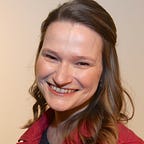Next steps: Building the Offline First community through face-to-face events
At Offline Camp, we spent a lot of time talking about how to build community as we push forward the Offline First movement. Although we were only on the first day of our first live event as the discussion kicked off, it was already evident to the group that face-to-face gatherings have enormous potential to make a meaningful and lasting impact. Throughout the remainder of the event, we gathered ideas around how to most effectively use events to grow and shape the Offline First community.
Presenting Offline First content at conferences
One quick and (relatively) easy place to start to push the Offline First message is at events focused on broader topics. For those of us submitting sessions or involved in selection committees, we can encourage conference organizers to view Offline First as an integrated and rapidly-growing part of the technology landscape. This starts with identifying not just tech events of interest, but also conferences focused on third-world healthcare, IoT, UX/design, mapping, or other areas of overlap where Offline First methodologies are already making a huge impact. Identifying stakeholders in these areas and using existing events has the potential to give us a much larger reach than does building our own audience.
Many community members have already submitted Offline First talks to conferences ranging from Fluent to Google I/O to JSConf Budapest, and as slide decks or videos of these talks are published, we can share them via Twitter and in the Offline First Reader. As a community, we can also help each other craft our abstracts and shape our session content to be as compelling as possible.
Sharing the Offline First love at Meetups, hackathons, and retreats
The same approach can be taken via local Meetups. I first met Offline Camp co-organizer Gregor Martynus at a New England Software Engineers group that chose to dedicate one of its monthly meetings to the topic of Building Offline First Web Applications, featuring presentations by Gregor, Nolan Lawson, and Giorgio Natili. UX groups also have a vested interest, as do those focused on geospatial, healthcare, and the like. For groups that use a presentation format, there are great opportunities for members of the Offline First community to give talks to groups of people that may currently have little knowledge of the subject. We discussed the possibility of putting together a resource kit for people who’d like to help spread the word through Meetups.
For cities that have a strong Offline First community but no Meetup group dedicated to that topic, building out a whole group is also an option. However, it can be time-consuming to maintain a group with regular gatherings and top-notch content. Camper Nathan Stilwell of Meetup called out that these groups don’t necessarily need to revolve around organized talks, quoting CEO Scott Heiferman in pointing out that “the best Meetups are the ones held in circles, not rows.” Storytimes, workshops, and informal discussions all have a place in spreading the Offline First message. (As do clever proposed names such as The Shitty Connection Club!)
Campers were also excited about the idea of running hackathons or workshops that get people hands-on with the technology. Companies already building tools for Offline First might be able to provide some resources for hands-on workshop content to make things easier for community organizers, and topics could range from “Offline First Your App” to my personal favorite, “Building Tools for the Zombie Apocalypse.” Hackathons or retreats could easily bring together different groups such as back-end developers, UX pros, and third-world healthcare providers to build practical apps to serve the broader community. Our Offline First Events page could become a central hub for cataloging these opportunities as we also share them via Twitter and in the Offline First Reader.
Offline Camp
The response of our 30 campers to our inaugural Offline Camp was overwhelmingly positive, and we continue to believe that the camp format is great for community building. As an organizing team, we hope to be able to take Offline Camp both to the West Coast of the United States and to Europe within the next year, enabling more people passionate about Offline First to get involved in shaping the movement from the ground up. (And to eat s’mores. Lots and lots of s’mores.)
Offline First Conference
Longer term, we would love to build off of the momentum of our intimate Offline Camps with a more traditional conference that would enable broader reach to both current practitioners and those who are just getting up to speed on Offline First. The camps held between now and then could provide a great testing ground to shape the most compelling session content for the conference, seed our speaker list with some truly amazing folks, and build energy around the movement.
Getting involved
Face-to-face events hold a lot of promise for spreading the Offline First message, but many hands are needed for this project! If you’d like to help out with organizing or speaking at future events, or would like to share existing videos and slide decks from relevant presentations, please join the Offline First Slack and post in the #community channel! (And don’t forget to use the #offlinefirst hashtag as you share your conference materials!)
Editor’s Note: This article is part of series of unconference session recaps submitted by the awesome folks who participated in our first ever Offline Camp, a unique tech retreat that brings together the Offline First community. You can find more coverage of our initial discussions in our Medium publication. To continue the conversation, join us at our next event or sign up for updates and cast your vote on where we should host future editions of Offline Camp.
